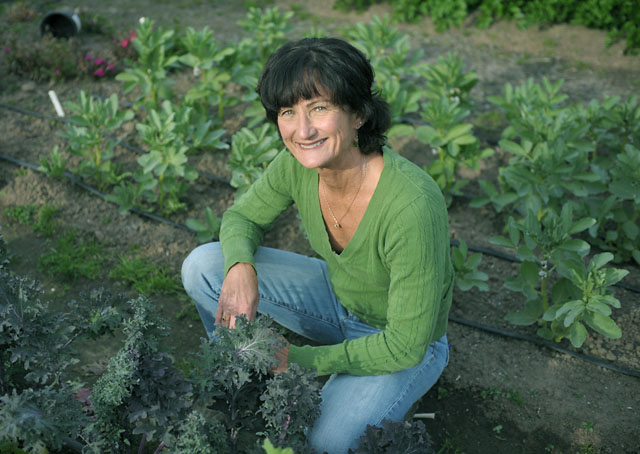Your Nutrition and the Environment
Making the Connection: How What We Eat Affects Our World

For those of us blessed with the luxury to really think about what we eat, one thing is certain: The more we think about what we’re eating, the more we realize just how much there is to think about. There’s taste, of course, but there are also nutrition, the environment, social responsibility. … It can be overwhelming and can make grocery shopping and menu planning more than a bit daunting.
That’s where Gerri Cardillo French’s Your Nutrition and the Environment class comes in. A registered dietitian at Sansum Clinic and nutrition educator with SBCC and Adult Ed, French has offered the class — which appeals to new moms, Farmers Market regulars, Pollanites, and the newly epicurious alike — three times in the past, and the next free, six-week session kicks off on January 28. The class will cover the effects our food choices have on the planet, the importance of supporting our local farmers, and simple ways to make a difference. It will include lectures, demos, film clips, field trips, guest speakers, discussion of current articles and books, and food tastings. (The upcoming session will include speakers who’ll discuss aquaponics, composting, and cattle farming.)
“In my private practice as a clinician, I talk about the basics but don’t get to talk about this stuff as much as I’d like,” explained French about why she developed the class. “I really feel like it’s missing — the interconnection between the environment and us, the way the environment affects us and the way we affect the environment.”
That interconnection expands well beyond the obvious, too. For example, this session, French will bring in a guest speaker from Patagonia to talk about the company’s organic cotton initiative. What’s organic outerwear got to do with nutrition? Well, because cotton is classified as a “nonfood” and therefore not subject to the same regulations as food, French explained, “When it’s grown non-organically, it’s doused with chemicals, and then that cottonseed oil gets used in a lot of cheap food, and when animals are given leftovers from the plants, they absorb those chemicals.”
Disturbing, yes, but French stresses that the class is absolutely not designed to freak you out — nor to cultivate a posse of food police. “[The goal] is not to have them judge what they’re doing or to judge others, but just to become informed consumers and to make changes as they are able and willing — not to get neurotic and so forth, just to make wiser choices, more ethical choices,” said French. “I use the [acronym] SOLE — it stands for sustainable, organic, local, and ethical. And then hopefully, they’ll share that information with their friends and family. The class is one of the best things I do.”
4•1•1
The free, six-week Your Nutrition and the Environment class starts on Monday, January 28, 5:15-7:15 p.m. at the Wake Center, Room 27, 300 North Turnpike Road. Visit sbcc.edu/adulted.



